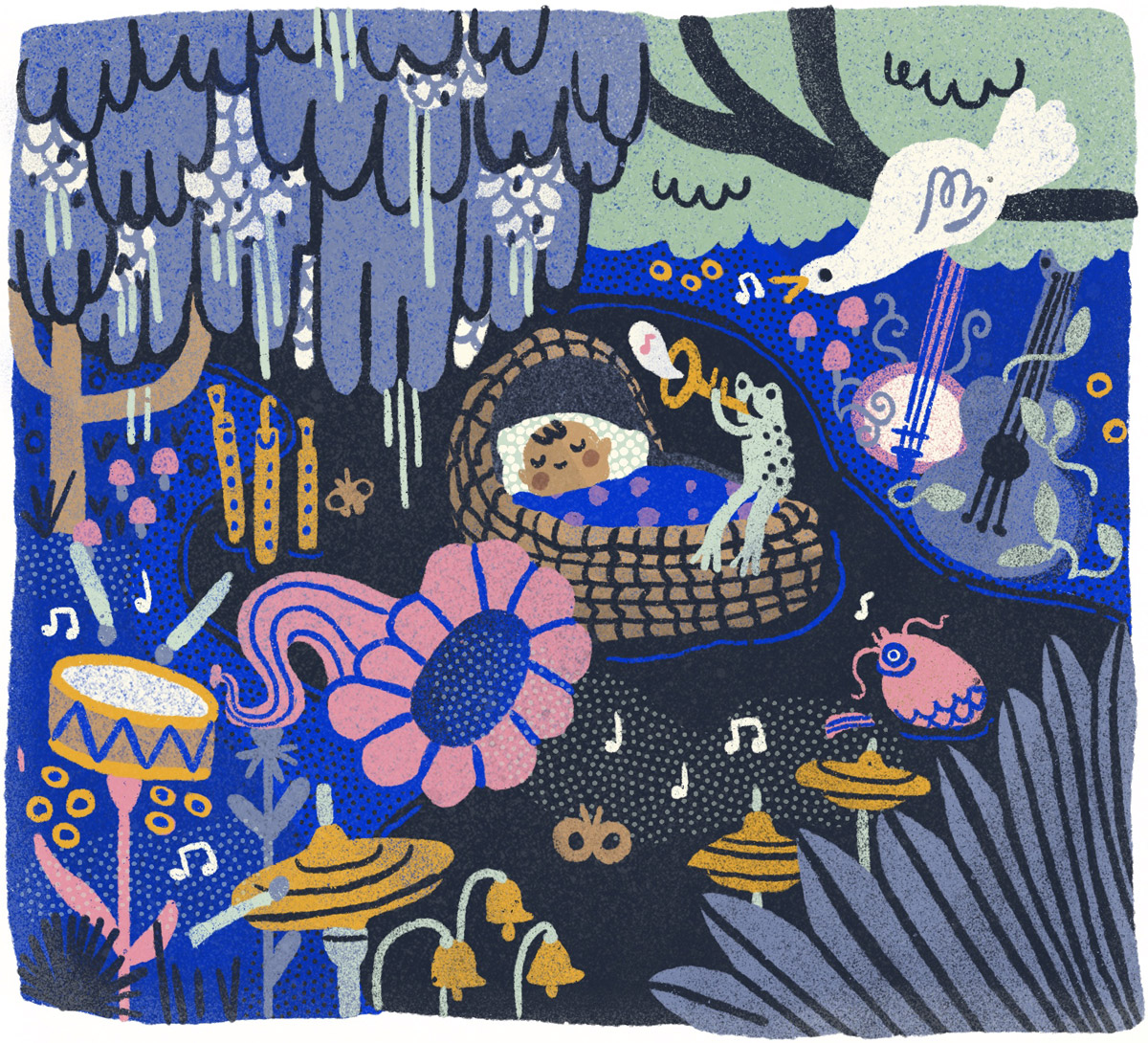
Illustration by Rachel Eleanor
Inside Children’s Healthcare of Atlanta, at the Scottish Rite neonatal intensive care unit, the sound of a mother singing the alphabet song (backed by an acoustic guitar) to her newborn baby plays from a CD player. This specialty unit cares for babies from across the state who were born prematurely or with health complications, which means that some families may be traveling here from hours away. It’s also home to Little Lullabies, a music therapy program started in spring 2018 by music therapist Hannah Ivey.
Along with David Tenenbaum, a music producer who volunteers with the program, Ivey works with parents to record personalized CDs of songs or stories that nurses can play for their tiny patients, day or night. So far, the duo has partnered with more than 25 families, allowing parents to comfort their babies, even when work or other obligations keep them away from the hospital. And because the program is funded by donors, the service is free.
Behind the Scenes
Little Lullabies connects with NICU parents through the referral of a nurse, physician, child life specialist, or physical therapist. Ivey meets with the family to explain the process and mitigate any anxiety they may have about stepping in front of the mic. Recording for each child’s unique, 15-minute CD is done in a hospital conference room–turned–temporary studio, featuring Tenenbaum’s recording equipment and sometimes Ivey on acoustic guitar.
Story Time
“Things like Goodnight Moon, Guess How Much I Love You, and Brown Bear, Brown Bear, What Do You See? are really popular” as far as reading material goes, says Ivey. Others bring religious materials from a variety of backgrounds and cultures or even poetry.
Classic Tunes
Most parents who choose to sing stick to classic nursery rhymes or lullabies. A select few, however, opt for a different tune: Elton John, Stevie Wonder, love-song classics from the ’60s and ’70s. Some even record songs they’ve written for their baby. “There was a dubstep song that we were able to slow down for more of an electronic song that the mom preferred,” she says.
Daily therapy
LaWanda Rosenberger, whose daughter Aubree spent months in Children’s NICU after being born prematurely, recorded a handful of books and songs, including one she wrote just for Aubree. With her daughter now living at home, Rosenberger says she and her husband, Jason, continue to sing the same songs to her every single day. “Hopefully, we’ll continue singing those songs as she reaches the age of one and she can start to sing them with us,” Rosenberger says.
Surround Sound
“I love watching babies listen to their recording for the first time,” says Ivey. “They’ll smile and turn their head towards the CD player, which is phenomenal. Older babies will smile, babble, and kick their feet, which is really sweet to watch.” Nurses say these recordings can be particularly beneficial to calm babies during a bath or after a painful procedure, such as an eye exam. “Parents are so thankful and appreciative for the opportunity,” she adds. “They tell me about how nice it is for them, when they’re at work or home, to know that their child is still being soothed and calmed by their voice.”
This article appears in our June 2019 issue.








![The North Carolina Museum of Natural Sciences’ newest exhibit is a [pre]historic first](https://cdn2.atlantamagazine.com/wp-content/uploads/sites/4/2024/04/DD-3-100x70.jpg)




